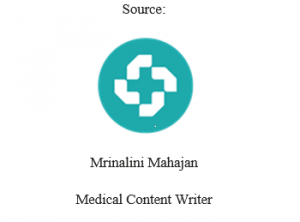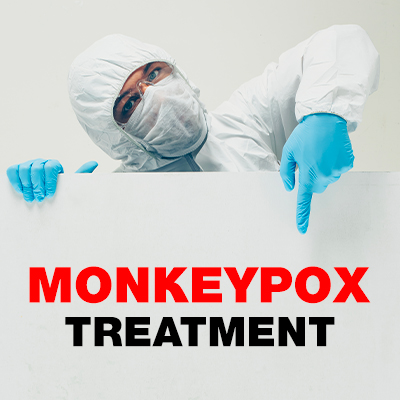Monkeypox is a rare, viral zoonotic disease that is similar to smallpox and is caused by the monkeypox virus. The virus is a member of the orthopoxvirus genus in the family Poxviridae. Monkeypox has flu-like symptoms such as fever and chills and a rash that takes about couple of weeks to clear. Classic presentation includes swollen lymph nodes. Monkeypox may in rare cases lead to a different range of medical complications. This is a self-limiting disease with symptoms lasting from 2 to 4 weeks.
Diagnosis of monkeypox:
Before understanding the treatment of monkeypox, it is important to know how monkeypox is diagnosed.
A healthcare professional can diagnose monkeypox with a blood test for detecting the monkeypox virus or antibodies. As monkeypox is a rare disease, doctors will also first rule out common rash-producing illnesses such as chickenpox, measles, etc. As mentioned earlier, one of the classical signs of distinguishing monkeypox over other rash fevers is ‘swollen lymph nodes.’
Healthcare professionals recommend performing polymerase chain reaction (PCR) testing. In this, a healthcare practitioner will take tissue from an open sore and then the swab is sent to the lab for PCR testing.
Treatment of Monkeypox:
There are no treatments specifically for monkeypox virus infection. Monkeypox is a virus that causes illness in humans and animals. One can treat monkeypox with the help of measures stated below:
Self-limiting disease: Monkeypox is a self-limiting disease with symptoms lasting from two to four weeks. Most people affected with monkeypox get better on their own without treatment. After the diagnosis, the healthcare professional will ask the patient to monitor the condition.
Isolation: this is one of the key measures that can be taken to control monkeypox. People affected with monkeypox must remain isolated at home for the complete duration of their illness. Prioritizing isolation helps in preventing transmission while balancing the impact of infection on people diagnosed with monkeypox.
Limit exposure to others: avoid contact with affected individuals until the rash has resolved, scabs have fallen off and a fresh layer of intact skin is formed. Infected persons must limit the use of items and space that are shared with other household members. Infected persons must also try to avoid contaminating upholstered furniture and other porous materials.
Take proper rest and fluids: Infected individuals must understand that fluids play a very important role in replenishing minerals and vitamins in the body and flushing out toxins. Infected individuals must include more fluids in their diets such as coconut water, amla juice, and a lot of water. Water helps you stay hydrated and eliminate toxins from the body. The affected individual must take proper rest as this will help recovering at faster pace.
Symptomatic treatment: individuals who are showing symptoms may need to take certain OTC medicines such as ibuprofen and paracetamol. It is highly beneficial that individuals must take proper rest, consume plenty of fluids and wear a mask. Also, the symptomatic patient must check the body temperature twice. If the patient develops a fever of more than 100 °F, then the person must immediately contact the healthcare provider for further guidance.
Vaccines and antivirals: There is no cure for monkeypox virus, but some antiviral drugs are believed to be effective. As monkeypox and smallpox viruses are genetically similar, the antiviral drugs and vaccines that are developed to protect against smallpox can potentially be used to prevent and treat monkeypox virus infection. These antivirals include tecovirimat or ST-246 (TPOXX), brincidofovir (Tembexa) and cidofovir (Vistide). These are prescription medicines and should be taken under medical supervision only.
Conclusion:
Most people recover from monkeypox without any severe problems. The best way to protect yourself is to avoid contact with infected people. Maintaining good hand hygiene is essential. If you have symptoms of monkeypox, you must talk to the healthcare provider. By following the above-mentioned treatment measures, you can lessen the impact of monkeypox.

